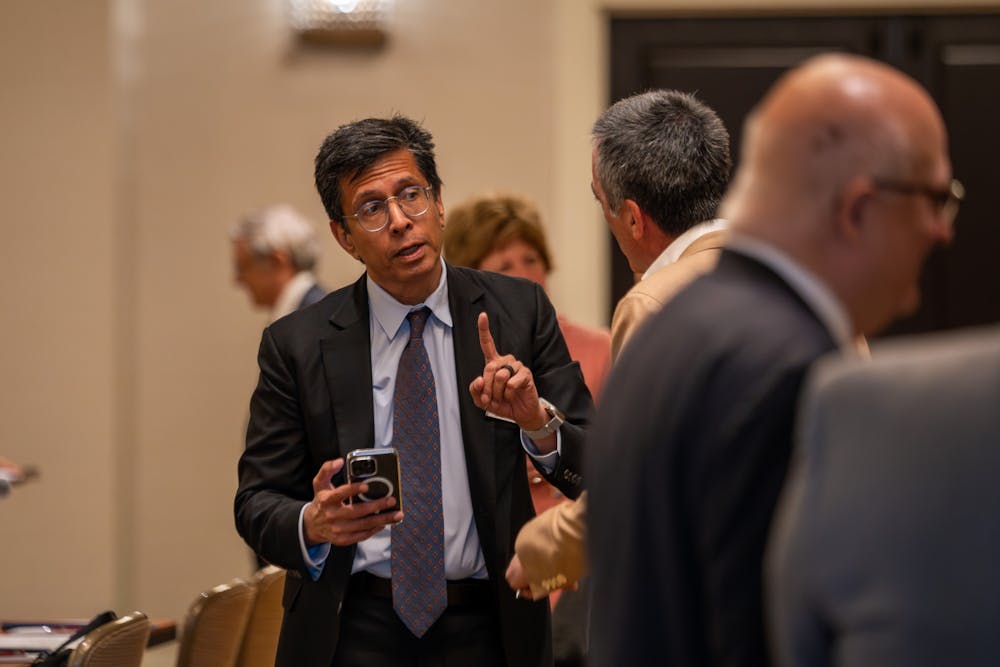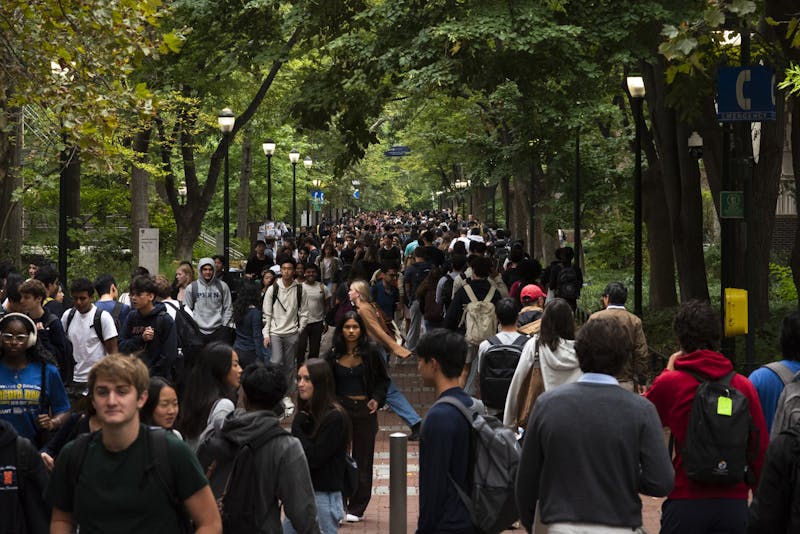
Penn Board of Trustees Chair Ramanan Raghavendran discussed his first six months in the role and his vision for the 2024-25 academic year in a recent interview.
In the interview with Penn Today, the University's news blog, Raghavendran touched on several issues that Penn has grappled with over the past year, including the question of institutional neutrality. He also discussed the role of the University’s trustees and the Boycott, Divestment, Sanctions movement at Penn.
"[Institutional neutrality] intertwines with the idea of academic freedom, which is central to a great American university such as Penn," Raghavendran told Penn Today, adding that the University is currently reflecting on whether the principle should be implemented at Penn.
A request for comment on the interview was left with a University spokesperson.
Raghavendran's interview also emphasized the need to develop an "overlapping consensus" at Penn, which he defined as an “agreement on the principles that allow us to live together harmoniously despite differing beliefs.” The term originates with the American philosopher John Rawls, who wrote about the importance of finding a shared basis for justifying social and political stability.
Raghavendran recognized in the interview that given the diversity of backgrounds and viewpoints at Penn, this kind of consensus requires work.
“Multiplicity isn’t easy to manage, and recent events have shown that we can’t take our harmony for granted,” he said.
Raghavendran added that it was important for the University community to be “intentional” in promoting an overlapping consensus and civil discourse. He pointed to the antisemitism task force and the Presidential Commission on Countering Hate and Building Community as concrete steps Penn has taken to foster a more harmonious environment.
And he reiterated the University's opposition to the BDS movement, which promotes boycotts, divestments, and sanctions of Israel and Israeli companies, following Interim President Larry Jameson's frequent statements expressing the same viewpoint.
“Penn does not support divesting from, boycotting, or sanctioning Israel,” Raghavendran said, citing that such action is against the law in Pennsylvania. He added that he personally views the BDS movement as an “anathema” to academic freedom and incompatible with an overlapping consensus.
“I feel strongly that the BDS movement demonizes Jewish and Israeli members of our community, whether intended or otherwise,” Raghavendran said. “This is simply unacceptable and suggests a lack of moral clarity.”
When asked to clarify Penn's official position regarding faculty, students, and student groups who voice support for BDS or involve themselves with pro-BDS groups, Raghavendran pointed to his previous statements on an overlapping consensus and emphasized the importance of fostering civil disagreement and dialogue at Penn.
“What we need to find here is the ability to disagree, often profoundly disagree, without being uncivil and without infringing on the rights of other campus community members,” Raghavendran wrote to The Daily Pennsylvanian. “I strongly believe that this can be achieved if we are all intentional about it.”
In the interview, Raghavendran also clarified the role of trustees in the broader context of the University. He emphasized that Penn trustees are “neutral custodians” of the University.
“[The trustees] do not have an executive role,” Raghavendran said. “We provide fiduciary oversight, but our President, in partnership with our faculty, runs the University.”
Raghavendran's interview comes after two semesters of faculty concerns about the influence of major donors and trustees on campus decision-making last semester. After leading the successful campaign to oust former Penn President Liz Magill, Wharton Board of Advisors Chair Marc Rowan sent an email calling for more trustee involvement in hiring and evaluating faculty. In response, over 900 faculty members signed a Faculty Senate letter warning of a “hostile takeover” from trustees and donors.
Raghavendran, a 1989 Wharton and Engineering graduate and 2015 LPS graduate, became chair of the Board in early 2024 following the resignations of former Board of Trustees Chair Scott Bok and former Penn President Liz Magill. He has previously served as chair of the School of Arts and Sciences Board of Advisors and the Penn International Alumni Council.
The Daily Pennsylvanian is an independent, student-run newspaper. Please consider making a donation to support the coverage that shapes the University. Your generosity ensures a future of strong journalism at Penn.
Donate






